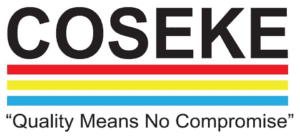
Cryptocurrency Companies in Court
In Nigeria, authorities have recently imposed a substantial fine on two cryptocurrency firms, Egomsinachi Road Autos Limited and Chimera Log & Haulage Services Limited, penalizing them $30,000 for conducting unauthorized transactions involving the stablecoin USDT (Tether) and the Nigerian Naira. This action aligns with the Economic and Financial Crimes Commission’s (EFCC) ongoing campaign against unlicensed cryptocurrency trading in the country. This court ruling, delivered by Justice Joyce AbdulMalik at the Federal High Court in Abuja, underscores Nigeria’s commitment to regulatory compliance in the digital asset sector, where unlicensed financial practices are treated with increasing severity.
Nigeria’s Strict Enforcement of Cryptocurrency Regulations
According to local reports, the Federal High Court determined that both Egomsinachi Road Autos Limited and Chimera Log & Haulage Services Limited had violated Nigerian financial regulations by engaging in unauthorized USDT-to-Naira trading without the required licenses. Under Nigerian law, such trading activities must be reported to the Special Control Unit on Money Laundering (SCUML), an oversight mandated by Section 11(3) of the Money Laundering (Prevention & Prohibition) Act, 2022. By not following these rules, the companies risked undermining the financial system’s integrity, and their activities were flagged as a significant infraction by the EFCC.
This crackdown reflects the Nigerian government’s stringent approach to the cryptocurrency industry, especially concerning entities operating without necessary licenses. Although crypto adoption is growing in Nigeria, driven by economic pressures and limited access to foreign exchange, Nigerian authorities remain cautious, seeing unregulated platforms as potential tools for illicit financial activities and money laundering.
Details of the Conviction and Financial Penalties
The Federal High Court’s judgment requires the two firms to forfeit a combined N50 million, roughly $30,000, to the EFCC’s recovery account. This order comes after a guilty plea from Chukwubuka Felix Ogumba, the director of both firms, who acknowledged the charges in court. Ogumba’s admission of guilt led to a plea bargain agreement, which the court subsequently ratified, with both his defense counsel and the EFCC prosecutor supporting the arrangement.
Follow this WhatsApp Channel for More Event Updates
In addition to the forfeited funds, each firm was fined N500,000, or approximately $650, as an additional punitive measure payable to the federal government. The court further instructed Ogumba to submit an affidavit pledging good conduct, indicating a move by the Nigerian legal system to deter future violations through personal accountability from company leadership.
The Broader Context of EFCC’s Cryptocurrency Crackdown
This case forms part of a wider regulatory strategy by Nigeria’s EFCC to combat unlicensed cryptocurrency trading and associated illegal financial activities. Cryptocurrency has become a popular alternative for many Nigerians, offering a means to bypass the country’s restrictive foreign exchange system. However, unregulated crypto trading has also sparked concerns among regulators who worry that it could exacerbate financial instability or facilitate money laundering.
This latest conviction of Egomsinachi Road Autos Limited and Chimera Log & Haulage Services Limited follows a series of similar cases targeting firms operating outside Nigeria’s formal financial regulations. Just weeks prior, the EFCC secured another judgment against the cryptocurrency company Official Gredo, similarly found guilty of engaging in unlicensed crypto trading activities. These back-to-back convictions suggest that the EFCC is intensifying its focus on enforcing compliance within the cryptocurrency industry, leaving little room for operators who circumvent the law.
Earlier this year, two other cryptocurrency companies, Paparaxy Global Ventures Limited and Lemskin Technologies Limited, were also sanctioned and ordered to return N160 million (approximately $95,000) to the Nigerian government. The EFCC’s investigations revealed that these companies had been engaged in unauthorized transactions that potentially manipulated exchange rates and enabled illicit fund transfers via cryptocurrency.
The Impact of Unauthorized Cryptocurrency Activities on Nigeria’s Financial Landscape
Nigeria’s approach to cryptocurrency reflects the government’s apprehension toward uncontrolled digital finance, particularly in relation to the potential impact on the national currency, the Naira. Unauthorized cryptocurrency platforms have been identified by the EFCC as contributing to exchange rate manipulation, further complicating Nigeria’s already challenging economic conditions. With Nigeria facing high inflation and economic pressures, unregulated foreign exchange activities—including those involving cryptocurrency—could strain financial stability and contribute to a depreciating Naira, which has historically struggled against global currencies.
In an effort to curb these challenges, Nigerian authorities have taken measures to monitor and restrict crypto activities deemed harmful to the economy. For instance, the Central Bank of Nigeria (CBN) previously issued a directive prohibiting financial institutions from processing cryptocurrency transactions. Although this directive did not explicitly ban cryptocurrency, it placed significant limitations on its use within the formal banking system. This regulatory stance, however, has not deterred Nigerians from participating in the crypto market, where demand continues to grow, driven by limited alternatives for cross-border payments and investments.
The Role of Compliance and Licensing in Nigeria’s Crypto Industry
As digital assets continue to permeate Nigeria’s financial ecosystem, the emphasis on compliance and licensing has become a focal point for regulators. According to Nigerian laws, companies involved in cryptocurrency-related activities must adhere to strict compliance standards to mitigate the risks of money laundering and terrorist financing. Licensing requirements help ensure that firms operating in this space are held to the same standards as traditional financial institutions, fostering a more transparent and stable financial environment.
Follow this WhatsApp Channel for More Event Updates
The SCUML’s mandate requires that businesses operating in sectors susceptible to money laundering—such as cryptocurrency—register with the unit and report relevant financial transactions. This regulation underpins the EFCC’s rationale for prosecuting unlicensed firms, as non-compliance can create vulnerabilities in Nigeria’s financial system that may be exploited for illegal purposes. In the cases of Egomsinachi Road Autos Limited and Chimera Log & Haulage Services Limited, their failure to obtain necessary approvals before engaging in USDT-to-Naira trading was a significant regulatory breach that could potentially expose the system to illegal financial flows.
Looking Forward: Future Implications for the Nigerian Crypto Industry
The EFCC’s enforcement actions illustrate Nigeria’s commitment to strengthening oversight of the cryptocurrency market, aligning with global trends in crypto regulation. As more countries adopt formal frameworks for digital asset management, Nigeria’s approach mirrors a global push to integrate cryptocurrency within existing financial regulatory frameworks while addressing the unique risks it poses.
However, Nigeria’s strict enforcement also raises questions about the accessibility and inclusivity of its financial ecosystem. While compliance requirements are necessary for financial stability, excessive restrictions on cryptocurrency could inadvertently stifle innovation and limit access to alternative financial solutions. As cryptocurrency remains an appealing option for Nigerians seeking to overcome economic challenges, balancing regulation with accessibility is likely to be an ongoing policy challenge.
This balancing act between regulation and innovation is evident in other jurisdictions as well, where governments are experimenting with regulatory sandboxes to enable controlled crypto innovation while ensuring adequate oversight. If Nigeria adopts a similar approach, it could create a conducive environment for crypto innovation without compromising on regulatory objectives.
Noteworthy Developments in Nigeria’s Crypto Scene
In an interesting recent development, Nigerian authorities have cleared Binance executive Tigran Gambaryan of money laundering charges. Gambaryan, who had been detained in Nigeria since February, was released after the government dropped the charges. This case highlights the complexities and challenges of enforcing cryptocurrency regulations in a way that is both effective and fair, especially as major crypto players like Binance navigate diverse regulatory landscapes.
The recent conviction of Egomsinachi Road Autos Limited and Chimera Log & Haulage Services Limited represents another milestone in Nigeria’s crackdown on unauthorized cryptocurrency trading. The case underscores the importance of regulatory compliance within the crypto industry and sends a message to other companies operating outside the bounds of Nigeria’s financial laws. As cryptocurrency continues to evolve, Nigeria’s approach may serve as a model for other countries grappling with the complexities of regulating this emerging asset class.
By enforcing strict penalties for non-compliance, Nigerian authorities aim to protect the integrity of their financial system while mitigating the risks associated with cryptocurrency. As the country continues to navigate the balance between fostering innovation and ensuring regulatory stability, the future of cryptocurrency in Nigeria will depend on the government’s ability to adapt its regulatory framework to an evolving digital economy.
Follow this WhatsApp Channel for More Event Updates
SHARE THIS POST




